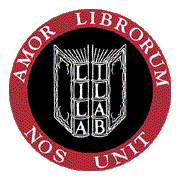Categorieën
Storia del diritto italiano : le fonti.
Door: Leicht, Pier Silverio.
- ISBN: 9788814007521
- Uitgever: IV edizione, riveduta ed accresciuta in collaborazione col C.G. Mor. rinnovata. Lezionion un'appendice di documenti da servire per le esercitazione. Milano : A. Giuffrè, 1956. 4th revised edition. Orig. printed wrappers. iv,366 pp. 26 cm. Italia...
- Taal: ------------------
- Categorie:
- Details: Conditie: goed. ROMAN LAW
- Extra informatie: - This is a collection of lectures on sources of the development of law in Italy from the fall of the Western Roman Empire to the Napoleonic era.The book is structured around distinct periods, each marked by major legal and institutional transformations. The Germanic-Byzantine period (476-774 AD) begins with the collapse of the Western Roman Empire and the subsequent rule of Odoacer, the Ostrogoths, and the Byzantines. Leicht examines the continued use of Roman administrative forms under Germanic kings and the Byzantine exarchate, as well as the social and legal changes under the Lombards (568-774), including their dualistic legal systems and church-state relations. The Carolingian-Feudal period (774-1100) follows Charlemagnes conquest of Italy and the formation of the Holy Roman Empire. Leicht highlights the imperial governance structures, the emergence of local immunities, and the transformation of land tenure into feudal obligations. By the 10th and 11th centuries, a highly stratified feudal society had developed, with legal relationships shaped by personal loyalty and landholding. The Communal and Signorial period (1100-1500) reflects the rise of city-states (comuni), especially in northern and central Italy. These communes developed republican governments, guild systems, and autonomous legal codes. By the 14th century, many had transformed into signorie (lordships), often ruled by powerful families, and then into regional monarchies and principalities, particularly in southern Italy and the Papal States. The Age of Absolute States (1500-1700) marks the consolidation of monarchical power. Leicht describes stronger central authorities, permanent armies, more efficient tax systems, and the weakening of feudal legal autonomy. The Modern States period (1700-1815) sees Enlightenment-inspired reforms, the spread of Napoleonic codes, and the emergence of centralized, codified legal systems. The book concludes with the preconditions for the 19th-century Italian unification and the foundations of modern public law.
-
€ 18.00
Verzendkosten: € 5.50
Voorraad: 1


